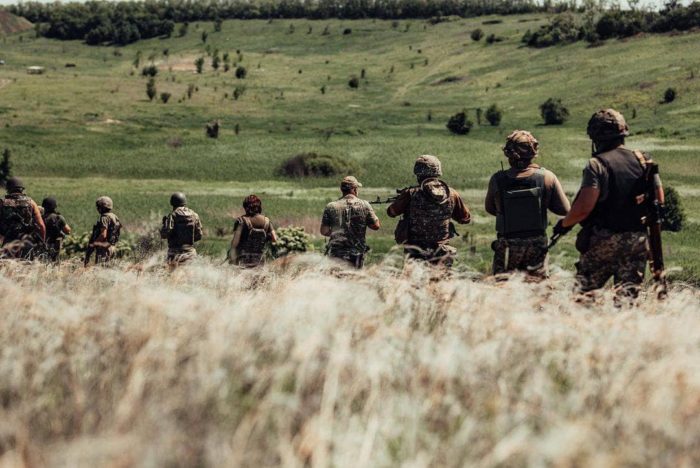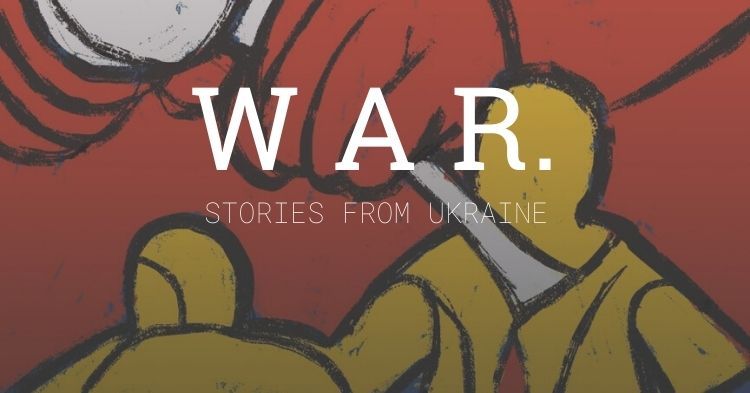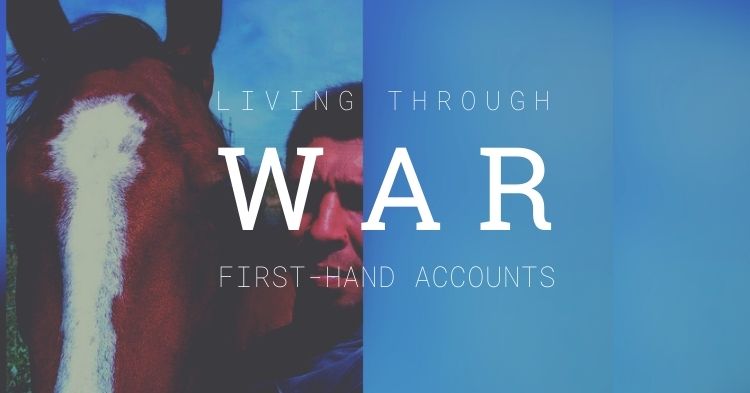The smells, the fears, but the will to fight are reflected in Myroslav’s vivid account of an ordinary day on the front line.
Ukrainian soldiers of the 130th Territorial Defense Battalion of Kyiv have been defending strategically important population centres in eastern Ukraine. The Defenders find themselves in “operational encirclement” and are under constant heavy fire from artillery, mortars, tanks, helicopters, and everything else the enemy can throw at them.
The soldiers in this territorial defense unit are mostly Kyivans, who, in peace time, had a variety of different jobs, including veteran television reporter Myroslav Otkovych, who serves in the battalion’s mortar platoon. Myroslav describes a day in the life of an ordinary Ukrainian soldier.
The night sky begins to brighten. The darkness rises silently from the trenches. The grass further down in the field converses with the bugs. Still further away, a goat has us under observation, while a fox races into its den. Slowly but surely we are at the dawn of a new day.
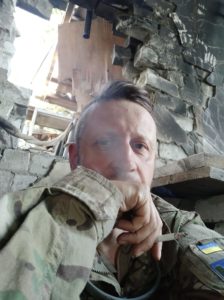
A bright new moon hangs low over the earth. Its distinctive disc touches a fallowed field off on the horizon, its colour changing ever more crimson, a red shining sliver, as though the moon were sipping our blood.
We have arrived at our deployment location.
A new troop rotation…
The men that we’re to replace emerge cautiously from their shelter, careful not to expose themselves to any enemy drone that might be in the sky at this moment.
I initially do not recognize them. Are they our men, or not?
They walk out, tiny pupils in wide open eyes.
Most of their faces are emotionless; some are as dead as a plaster death mask.
I am plagued by one thought: “Lord, what have these men just endured?”
Vepruk intuitively understands the query behind the expression on my face and answers, “It’s been hell.”
We shake hands, embrace, and share a heartfelt moment. Each man expresses himself in a brief phrase. Succinct and clear:
“Be careful, Myrik.” It’s Siepar who speaks. He’s typically rather vocal, but of late has been uncharacteristically quiet.
“Boys, promise me you’ll keep alert to the sounds of incoming shells,” Korotky adds in Russian, in a fatherly and concerned manner.
The final voice to be heard is a word from Takbir. He speaks in a near-whisper and nonchalantly:
“It’s scary here. And it smells of death.”
I’ve had a painful headache ever since we arrived. Now I understand why.
By morning we’re quartered in an underground shelter. We tend to our supplies and we study our line of fire. The silence our unit has been enjoying is abruptly disrupted by the first explosion.
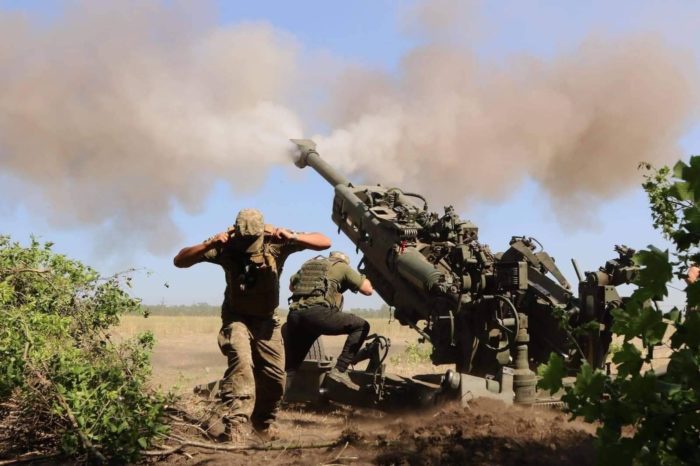
The enemy is firing at us using self-propelled artillery. The shells strike accurately and fall in a tight pattern, one after another.
The artillery is merciless and fierce. It cuts into our trenches, destroying the shelter; and sowing death.
In spite of this chaos, our task is to be ready for battle. We feel no heroics about the prospect, but are rather more matter-of-fact in our disposition, steeling ourselves simply because we’re here at this moment; we’re here and now, and we will fight.
Brother defending brother.
The radio crackles to life:
“Spider, this is Bobman.”
“Copy.”
“The orcs are making their way through the trees. I’m forwarding the coordinates. Send them some surprises.”
“Copy.”
And so we make our exit. The sound of chaos is all around us, the noise of mortars and shells whizzing past our heads.
We arrive at our battery, exposed as it is. I adjust the coordinates on the barrel of the mortar. Time passes in seconds that feel like painfully long minutes. Bullets whistle overhead, joined by bursts of automatic rifle fire and the lower baritone voice of a machine gun. I notice the orchard in question. And sure enough, there’s the enemy infantry, creeping ever closer.
My compass isn’t cooperating, the arrow unable to mark the direction north. We’ll be firing at close quarters. What’s needed now is pin-point accuracy in our firing, so as to avoid striking our own men. There’s no room for a mistake.
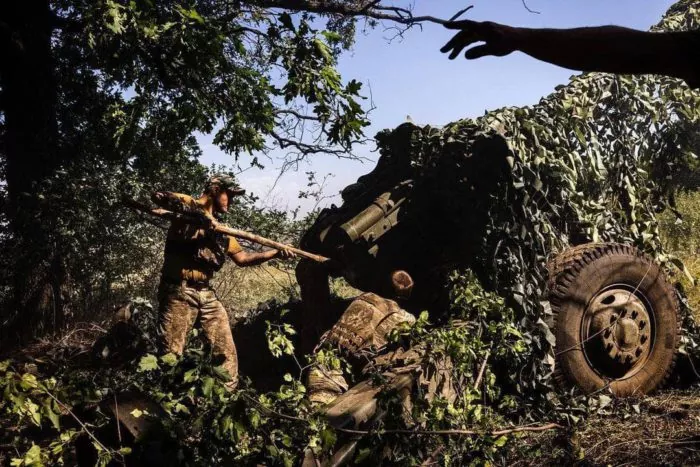
Fooshshfkheet… That’s the sound of an incoming enemy shell as it lands nearby.
The platoon commander can barely restrain himself as he nervously rocks from one foot onto the other. He takes cover in the shelter, then shouts out to me through an opening in the wall.
“Hurry up already. I said ‘Open fire!’ Don’t you understand?!”
I continue working on the compass needle to find the correct bearing.
Fooshshshfkheeest. A second enemy mortar speeds loudly through the air and crashes nearby. I leap to safety, and just in time, too. I look like a turtle when I complete my landing. What that means is that my back is arched, my feet are tucked under me, my knees are pinched together, and my arms are above me as I hug my head close between my shoulders. In this manner I have a better chance of protecting my extremities, while the bulletproof vest protects the rest of me in the event I get hit by shrapnel.
I have survived unscathed this time. I get up and return to work.
The shell struck the wall of a barn and the unprotected animals inside.
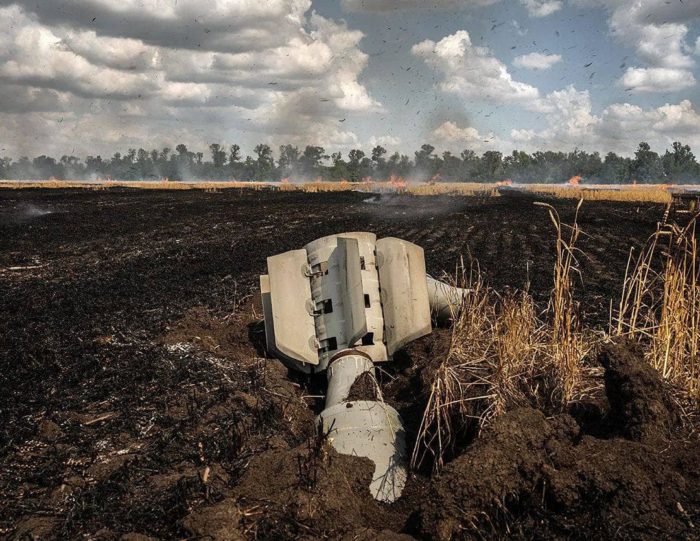
All one can hear from that direction is the bleating of goats.
These cries are punctuated by the repeated and hysterical falsetto of the officer, “Faster. Faster.”
They alternate: “Baaaa. Baaaa”. “Faster. Faster.”
I’m reassured by the knowledge that I have reliable men with me: Feshn and Tekhnik.
Fooshshshfkheeeet.
Mortar number three. Come what may. This time I don’t react. I keep doing my job.
Our mortar is held above the barrel opening. I adjust the settings again, as well as the horizontal and vertical placement of the mortar platform.
All set. Ready!
“Fire!” I cry.
Boom-ba-ba-boom!
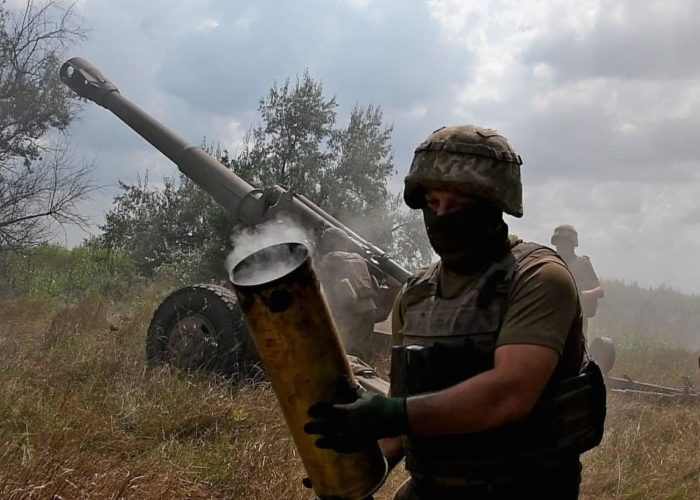
Tekhnik alternates in a one-two motion with Feshn as they both drop the shells into the barrel; their demeanour is all business-like and cold-blooded.
The noise from the mortars is deafening.
Someone yells, “I can’t hear anything.”
I shout back in reply, “It’s nothing. It’ll pass.”
Feshn is silent, but his body language is very animated as he assesses his surroundings. I’ve seen this intense gaze before, the sight of a trained hunter. All such a warrior needs is the word of command and he’ll launch the attack.
Tekhnik is visibly agitated, though much more out of concern for us than for himself. His mission is two-fold. He’s a medic. And he’s a combat soldier. Just recently, he extracted one of our officers from the battlefield, applying a tourniquet first, and in so doing, saved the man’s life. We have no desire to make extra work for Tekhnik, and so we seek the protection of the underground shelter.
Our task has been accomplished.
The rifle fire begins to wane. The enemy diversionary reconnaissance group retreats. To our relief, our heavy field artillery opens fire. Our job was to restrain the invaders, and the job of the artillery now is to decimate them. There will be fresh fertilizer.
It isn’t long before our reconnaissance troops make their report: we’ve been facing Wagner forces. The day before, it was their marines. The routine repeats continually. Russia is running out of cannon fodder. Consequently, this grunt work must be delegated to elite units.
Come to think of it, who are we? Why, we’re the 130th Battalion, Territorial Defence, city of Kyiv.
Not bad, right? And definitely not ones to shake in our boots.
We have proven ourselves to be fierce fighters, and have been forged in the fire of battle.
Even if we’ve had only four months of army experience.
Wagner troops? Big deal.
We listen to what’s being said over the radio.
We need to know how our men in the forward trenches are faring.
We learn that evacuation of the wounded has begun on the outskirts of the village. One is wounded: a 300. One is deceased: a 200. There is a third soldier whose wounds are described as very serious.
Rudy is dead. Shrapnel from a mortar pierced his helmet and struck him in the head. Rest in peace, brother. May you enter the heavenly kingdom. Honour and glory to you!
To tell you the truth, I feel no emotions at all right now.
My one thought? I need a drink of water.
The radio comes to life once more: the 300 is now 200. They were unable to evacuate him. The ambulance then left without him.
By the fifth day of this battle, our eyes and the expression on our faces now resemble those of the soldiers who greeted us when we first arrived. No one was prepared for the intensity of this combat.
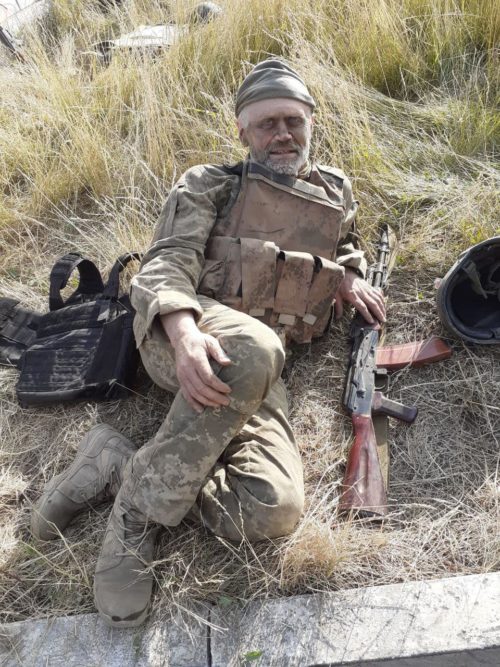
We are squarely situated at what’s known as ground zero. Here, the war is such that we’re forced into a daily game of roulette with fate. When your sector is hammered by an entire salvo of Hrad missiles, whether you’re prepared for it or not, a wager has just been made. All that remains now is for the smoke to clear and for you to assess whether you’ve won or lost.
Multiple missiles explode simultaneously. The earth heaves and shrapnel fills the air. Not only does the sudden shock wave strike hard against your ears, but your eyes begin to darken as well. In fact, all your internal organs begin to vibrate, especially if you’ve just experienced the explosion of a 122mm shell.
Beyond the safety of the shelter, the chaos is sheer hell. I’m not exaggerating. The sky is hidden behind smoke and ash. The natural light of a clear day turns into night. Tongues of fire lick the still-standing walls of destroyed houses. The fire approaches menacingly the entrance of our shelter, and also scorches the earth and grass in the near vicinity.
I twist and contort my body into a fetal position, and count the explosions: One. Two. Three… Forty. An entire complement of missiles that one Hrad system can fire.
During this bombardment, I intuitively seek an emotional embrace with each and every person in my life back home who is worried about my well-being.
The ESP works flawlessly. The brain receives signals like a computer modem. All those who are “online” with you are your “subscribers”. Your universe. Your family. Every authentic and loyal relationship in your life. Together they form a protective, invisible dome over your head, stopping the sky from collapsing onto you. They deflect incoming harm off into the open field, and prevent high explosives from detonating, leaving them harmless in the ground where they’ve crashed, awaiting a future day of peace when they can be safely removed.
War is not explained in this manner in books, and less so in movies, where the emphasis is on heroism, or on the manipulation of tragedy for the sake of drama. Normal people don’t want to buy tickets to watch the type of “movie” that we’re experiencing here.
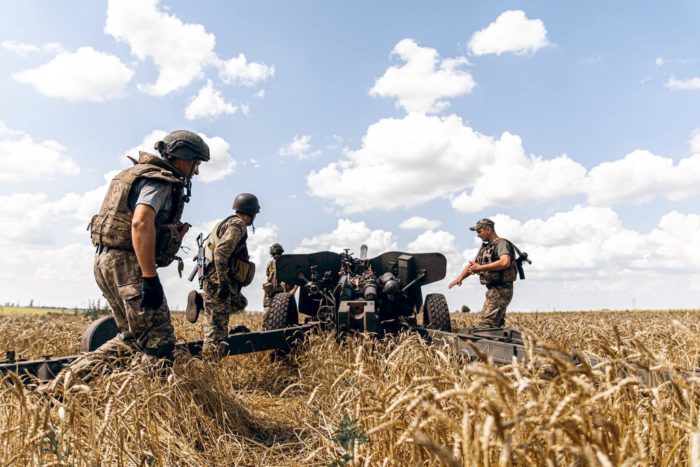
We had our orders, we completed our assignments, and we returned alive from our rotation in and out of the front lines. With one difference: each of us has been changed by these experiences. From now on, the imprint of these battles will remain before our eyes. The reflection of a purple moon over the midnight steppe will forever remind us of these days.
The bodies of our deceased brothers-in-arms have been gathered safely off the field of battle. Each of them has been given a dignified farewell, and only then will these fighters find their eternal rest within the damp earth.
P.S.
You might ask: “Why has he written this?” Perhaps because you’ve asked me to describe these experiences, and have told me what interests you. I’m sure such writing fills a void created when official statements are made and there are announcements in the mass media informing the public about developments at the front. I understand where you’re coming from.
Not everyone can keep their emotions in check under such stress. The temptation to abdicate one’s moral duties is daunting. Such an internal struggle drains all one’s energy and results in profound apathy. Now is not the time for such weakness!
Each of you is needed at the front.
Each in your own way: some with words, others through prayer. And there are those needed at the front through their actions.
We won’t lie to you!
Our soldiers are made of mortar and steel.
Well, except for me, but I can give you countless examples of those who are. You’ll have no shortage of role models.
Slava Ukraini! (Glory to Ukraine!)
Read more:
- Russian troops suffer epic fail while attempting to cross river at Bilohorivka
- Missiles and escorts: Unblocking Ukraine’s ports on the Black Sea
- West must avert long-term war in Ukraine – US Gen. Wesley Clark
- Russia losing Ukraine war, equipment losses show
- 12 reasons why the West should arm Ukraine, now!
- How will UK PM Johnson’s resignation affect Ukraine?
- War in Ukraine is worst we’ve seen, say Iraq and Afghan veterans – Foreign Legion spox
- Ukraine needs the capability to attack Russian airfields – former commander US Army Europe




